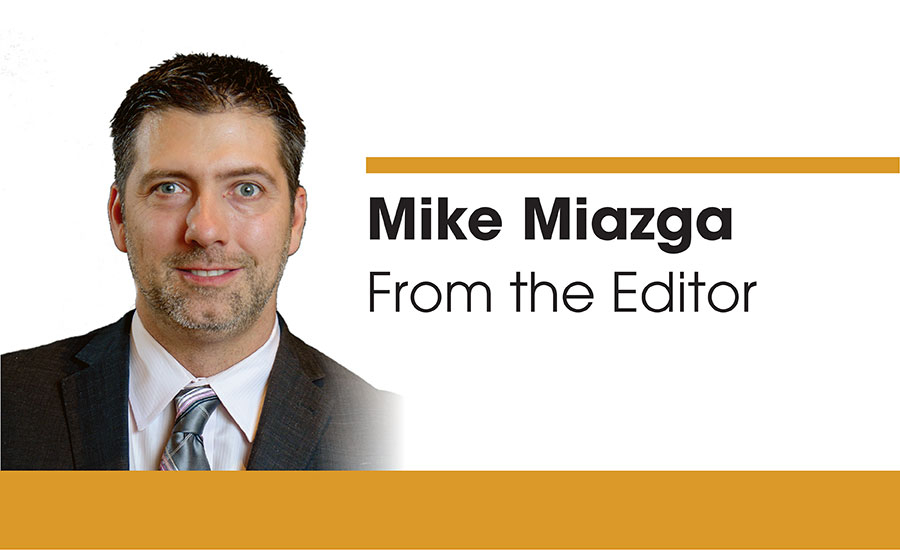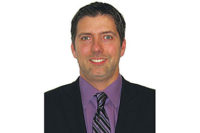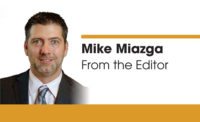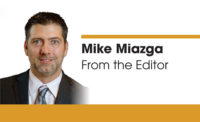As I was driving to the store recently, a green-living commercial on the radio caught my attention.
The spokeswoman said a simple way to live greener is to not rinse dishes before putting them in the dishwasher. She said that could yield a yearly savings of about 7,000 gal. of water per household.
That got me thinking about taking water for granted. Yes, there is a big push to live greener and conserve water, but how many of us sometimes take the immediate availability of water for granted? I know I’m guilty on occasion. No more pre-washing water for my dishes.
One area of the world that doesn’t take water for granted is Africa. Industry veteran and occasional Supply House Times contributor Don Arnold saw that firsthand five years ago on a church mission trip to Uganda.
“My friend stopped the car and pointed down to a muddy creek,” he says. “Residents were putting filthy water in jerrycans (a type of container). They were drinking it and cooking with it. I was told a lot of them would get sick from it and some would probably die. That’s all they have.”
Arnold, whose 50-year professional resume includes roles as a product designer, marketing executive and writer, decided to take action. Arnold is spearheading the use of biosand filtration in Kenya.
Biosand filtration, a point-of-use iteration of a technology used on a large scale in municipalities since the 1800s, uses sand and gravel as filtering media, allowing a biological layer to form at the top of the device.
Arnold says this typically destroys more than 90% of bacteria and viruses in water as well as all parasites. The 7-lb.device (before sand and gravel are added) is about the size of a tall waste basket and produces up to 75 gal. of potable water each day. Owners pour untreated water into the top and through simple displacement potable water is discharged into a clean receiving container.
“Half the pumps in Africa aren’t working because they are broke or require maintenance,” he says. “This filtering device will last years and years. There is nothing to replace.”
Arnold solved the supply piece of the equation by contacting the Triple Quest division of Grand Rapids, Mich.-based Cascade Engineering, the supplier and licensee of Canadian professor Dr. David Manz’s plastic Hydraid device. Manz is credited with creating slow-sand filtration technology for individual homes.
A meeting with Oklahoma commercial building mogul Calvin Burgess got the ball rolling on what is now the Safe Water Team Kenya distribution center located on the site of Burgess’ Dominion Farms in far-western Kenya.
The facility received its first shipment of 2,250 Hydraid filters in February and a large-scale deployment is well underway. “We’re hoping to get at least two containers a year,” says Arnold, who is now receiving requests for the filters from neighboring countries. “We’d like to get one more shipment this year and two more the following year. We’d like to hit a stride of 5,000 installations a year.”
Arnold says the cost of materials, installation and shipping runs about $100 per filter, and residents are charged 300 shillings (about $2.65) for each unit. “Two dollars and 65 cents doesn’t seem like much, but that could be a week’s income for them,” he says. “We decided to charge a little something to establish ownership and value. These people desperately need jobs so we’ve created jobs on installation teams.”
Arnold says the initial response and effectiveness of the filtration program has been overwhelmingly positive. “In the community meetings that introduce the program, when they ask who wants a filter all hands go up. They are seeing health issues starting to decline.”
Arnold calls his work on this project the most gratifying of his career.
“Bob Buford (author and philanthropist) calls it going from success to significance,” he says. “I’ve designed ridiculously high-priced products that have no application outside the Western world. Over there you see the level of need, how content they are with so little and how grateful they are for any kind of help. To do something as basic as provide safe water and keep people healthy is beyond satisfying. I wish I would have done this a long time ago. It’s making a huge difference and I have dreams to make it even bigger.”






